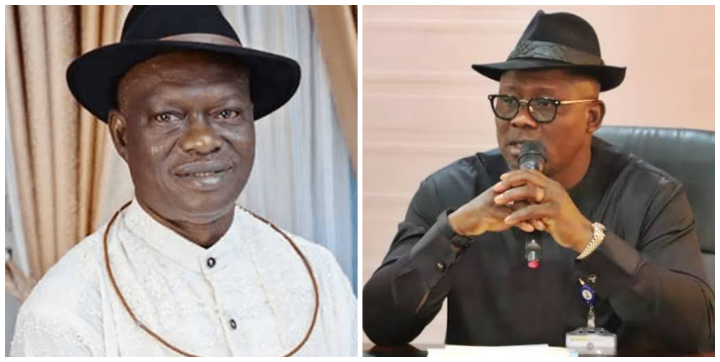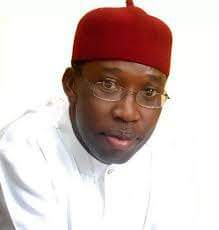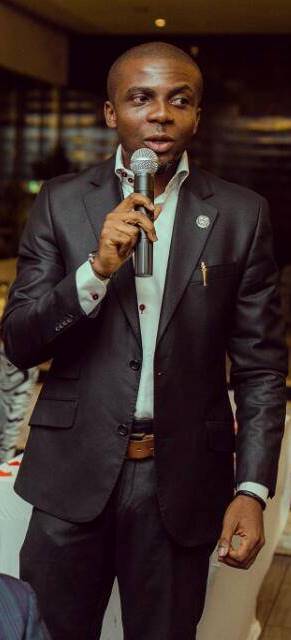EntertainmentOpinion
From MDGs to SDGs: What you should know
By Alex Osondu Atawa-Akpodiete*
Since last weekend, at the United Nations in New York City, the world gathered to deliberate and adopt a set of seventeen (17) Commandments that if obeyed, will lead to a better world.

After the address of Pope Francis to the United Nations, the world leaders sat down to adopt the 17 Sustainable Development Goals (SDGs). The President of the Federal Republic of Nigeria, Muhammadu Buhari also addressed the 70th Session of the United Nations General Assembly based on a personal invitation he received from the UN Secretary general Ban Ki-Moon, when the latter came to Nigeria.
To quote another publication, “Since the ascension of President Muhammadu Buhari into power, it appears Nigeria has enjoyed more positive attention from the international community. From the President’s visit to the White House, to the UK’s reported open support of our war against Boko Haram, and now to the timely visit of UN Secretary General Ban Ki Moon, one can only bask in this attention and ensure that the attendant opportunities are maximized … The United Nations has offered their arm of support in this regard. In recognition of President Buhari’s glaring determination to fight corruption and insecurity, as well as the position we occupy in Africa as a nation, the UN is more than willing to join hands with us to ensure that we continue on this path and achieve set targets.”
Man has constantly tried to develop himself, while a few have tried to destroy themselves and the environment. Nation States over the past two decades have looked for ways to enrich humanity, by balancing development with environment. Today, as crisis rage in various part of the world, it behooves us to look for ways to improve our standards of living without destroying the environment.
The depletion of the ozone layer with the accompanying climate change can no longer be ignored. Whether it is violence against women and children, poverty, injustice or climate change, all humans are inextricably linked and we must collectively strive for a better world. From goals like Vision 20;2020, which was aimed at making some 20 nations the best economies by the year 2020, to the Beijing Declaration and Platform for Action (BPA), the Millennium Development Goals (MDGs) and now the Sustainable Development Goals (SDGs), mankind is setting realistically achievable goals for effective advancement, both in the short term and the long term.
Of course, SDGs did not just come out overnight. There were several meetings by various groups, including Nairobi Forward looking Strategies for the Advancement of Women. Space will not allow for enumeration of all of them. However, in 1995, over 17000 participants and 30,000 activists converged in Beijing China and came up with what is commonly known as Beijing Declaration and Platform for Action. The Forth Women Conference that held from 4th to 15th September, recommended to the General Assembly of the United Nations at its fiftieth (50th) session that it endorse the Beijing Declaration and Platform for Action. In summary, the BDPA had twelve areas of concern.
After the BDPA, came the Millennium Development Goals (MDGs), geared towards developing countries. The eight MDGs were (1) reduce poverty and hunger; (2) achieve universal education; (3) promote gender equality; (4) reduce child and (5) maternal deaths; (6) combat HIV, malaria and other diseases; (7) ensure environmental sustainability; and (8) develop global partnerships. The MDGs expire this year, and have essentially now been replaced by the SDGs, which is tied to the Rio+20 Outcome Document.
There are 17 SDGs that some have termed the 17th Commandments. Even though there was some initial opposition to the number of SDGs, it was finally narrowed down to 17. Although the SGDs are 17, there are also 169 targets and 304 proposed indicators. They SDGs are: (1) End poverty in all its forms everywhere; (2) End hunger, achieve food security and improved nutrition, and promote sustainable agriculture; (3) Ensure healthy lives and promote wellbeing for all at all ages; (4) Ensure inclusive and equitable quality education and promote lifelong learning opportunities for all; (5) Achieve gender equality and empower all women and girls; (6) Ensure availability and sustainable management of water and sanitation for all; (7) Ensure access to affordable, reliable, sustainable and modern energy for all; (8) Promote sustained, inclusive and sustainable economic growth, full and productive employment, and decent work for all; (9) Build resilient infrastructure, promote inclusive and sustainable industrialisation, and foster innovation; (10) Reduce inequality within and among countries; (11) Make cities and human settlements inclusive, safe, resilient and sustainable; (12) Ensure sustainable consumption and production patterns; (13) Take urgent action to combat climate change and its impacts (taking note of agreements made by the UNFCCC forum); (14) Conserve and sustainably use the oceans, seas and marine resources for sustainable development; (15) Protect, restore and promote sustainable use of terrestrial ecosystems, sustainably manage forests, combat desertification and halt and reverse land degradation, and halt biodiversity loss; (16) Promote peaceful and inclusive societies for sustainable development, provide access to justice for all and build effective, accountable and inclusive institutions at all levels; and (17) Strengthen the means of implementation and revitalize the global partnership for sustainable development.
The United Nations summit for the adoption of the post-2015 development agenda, which held this past weekend (25 to 27 September 2015), in New York, was convened as a high-level plenary meeting of the General Assembly. The various national governments discussed the 17 goals that could transform the world by 2030.
The center for Peace and Sustainable Development is a Non-Governmental Organization, with the primary goal of promoting the SDGs and assisting governments in achieving them. CfPSD organizes workshops & training seminars globally, with the aim of also working with UNESCO and other NGOs.
One glaring target of the SDGs includes reducing by at least half the number of people living in poverty by 2030, and eradicating extreme poverty (people living on less than $1.25 a day). For Nigeria that means those leaving on less than 7,000 Naira a month, which is a lot of people.
It is our hope that by 2030, the world will be a better place, if we all do our part (individually and collectively) to achieve the SDGs.
Prof (Rev.) Alex Osondu Atawa-Akpodiete, the President of the Center for Peace & Sustainable Development, wrote from New York. Contact him on +12407724113, +2348138391661 (SMS) or Profatawa@gmail.com.


